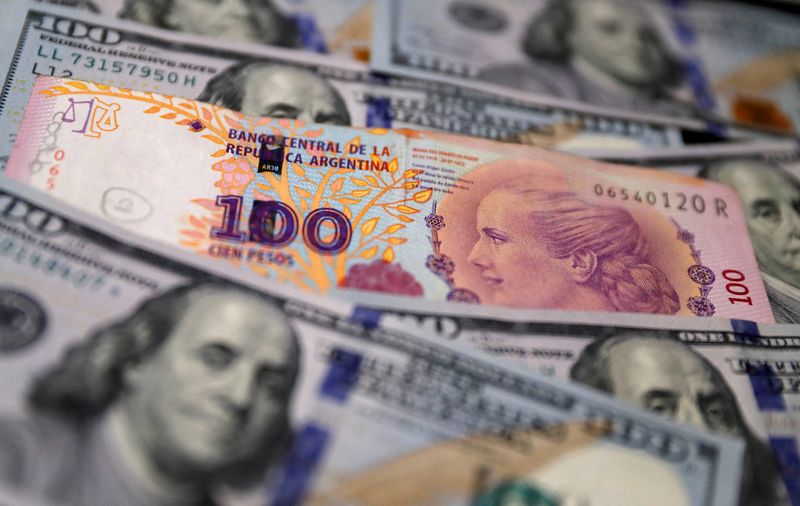By Eliana Raszewski
BUENOS AIRES (Reuters) - Argentina's government will push state entities to give up their foreign-law sovereign dollar bonds, an economy ministry official said on Tuesday, aiming to reduce exchange rate volatility and absorb a surplus of pesos.
The government, expected to announce the measures by decree on Wednesday, will seek to withdraw foreign-law dollar bonds from state entities and make them place a portion of their local-law dollar bonds on the open market, the official said on condition of anonymity.
The government aims to exchange some $4 billion in foreign-law bonds for peso debt, local news outlet Infobae said.
The official did not provide details of the size of the exchange being considered.
The move comes as the South American grains producer grapples with dwindling foreign currency reserves, a drought hitting exports, annual inflation at more than 100% and pressure on the peso currency pushing up dollar prices in informal markets.
The ministry official said the move would allow the government to absorb excess pesos in the market that were stoking inflation, to reduce dollar debt under foreign law, and to gain levers to act in the foreign exchange market without hurting reserves.
"It helps to reduce the volatility of dollar markets in particular, and of the capital market in general, thus avoiding impacts, among others, on inflation," the official said.
State entities that previously bought government bonds would give up some local-law dollar debt to the market, with the rest returned to the central government. They would also return their foreign-law dollar debt, to be exchanged for local-currency debt.
The peso has sharply depreciated in informal markets against the dollar in recent days, hitting a record low on Tuesday as a prolonged drought has fed fears of a market shortage of foreign currency following a decline in farm exports.

The gap between Argentina's official exchange rate and the popular unofficial "blue" market is nearly 90%.
The country's economy ministry has summoned bank executives, investment fund managers and insurance companies to meet on Wednesday morning to discuss the measures, the official said.